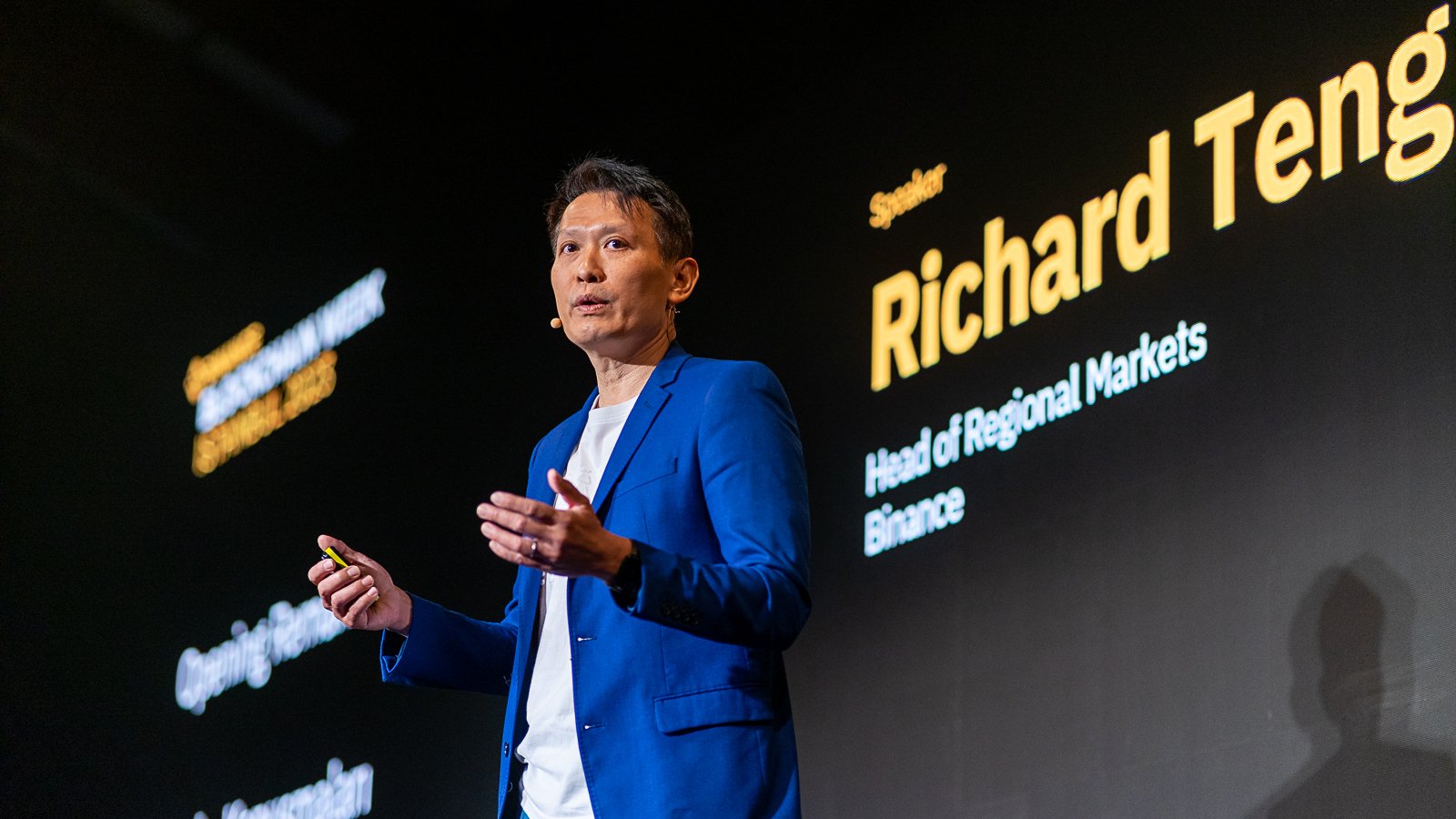Binance CEO Richard Teng, photo by Wikimedia Commons
Continuing from our last discussion about "Binance Holding Seizure of Palestinian Crypto Funds," recent developments have shed more light on the situation, mainly through the response from Binance CEO Richard Teng. Teng strongly denied the allegations that Binance froze all assets belonging to Palestinians at the request of the Israeli armed forces. The CEO's response has added another layer of complexity to an already contentious issue, raising questions about the role of centralized exchanges in the broader context of cryptocurrency and global politics.
Without further ado, let’s continue the discussion.
Binance CEO’s Response to Allegations
Richard Teng, in a post on the social media platform X, responded to the claims made by Ray Youssef, the CEO of the peer-to-peer bitcoin trading platform NoOnes. Youssef had alleged that Binance, under pressure from the Israeli Defense Forces (IDF), seized all funds belonging to Palestinian users. Teng, however, was quick to dismiss these allegations as "FUD," an acronym for fear, uncertainty, and doubt, which is commonly used in the crypto community to describe misleading or false information intended to create panic.
Teng clarified that only a limited number of accounts, specifically those linked to illicit activities, were blocked from transacting. He emphasized that Binance, as a global crypto exchange, is committed to complying with internationally accepted anti-money laundering (AML) legislation, much like any other financial institution. According to Teng, Binance's actions were consistent with its legal obligations and were not indicative of a broader seizure of Palestinian funds.
Community Reaction and Concerns
Despite Teng’s reassurances, the crypto community has reacted with concern, particularly given Binance’s history of cooperation with Israeli authorities. Ray Youssef has claimed that the freeze on Palestinian accounts is real and extensive. Youssef’s comments, shared on the platform X, have further fueled community fears about the potential overreach of governmental authorities in the crypto space.
Adding to these concerns, a screen-recorded video allegedly showing a message from Binance’s customer service confirming that the freezing of a Palestinian user’s account was ordered by Israeli law enforcement has circulated online. This has intensified calls for Binance to clarify its position and actions amid growing distrust.
The Debate Over Centralized Exchanges

Illustration of Crypto Community, photo by Matheus Bertelli on Pexels
The ongoing debate around centralized exchanges like Binance revolves around their susceptibility to governmental influence and control. The very essence of cryptocurrencies lies in their decentralized nature, which is supposed to offer financial autonomy free from the control of any single entity, especially governments. However, incidents like these highlight the inherent contradiction when these decentralized assets are traded or stored on centralized platforms.
Richard Teng's response has done little to quell the concerns of those who view centralized exchanges as increasingly vulnerable to external pressures.
For many in the crypto community, this incident serves as a reminder of the importance of decentralization. The mantra “Not your keys, not your coins” is becoming increasingly relevant as users seek to protect their assets from potential government intervention. If Binance cannot effectively address these concerns, it may drive users towards decentralized platforms, where control over assets is not subject to external pressures.
Our STARX Token transition to a DeFi model reflects this growing need for true financial freedom and autonomy.
The Future of Centralized Exchanges
This is the summary of the current situation, and it leaves us with much to ponder about the role and future of centralized exchanges in the cryptocurrency landscape. As the situation unfolds, it will be crucial to keep an eye on how these developments influence the broader discussion about decentralization and financial autonomy in the digital age.




